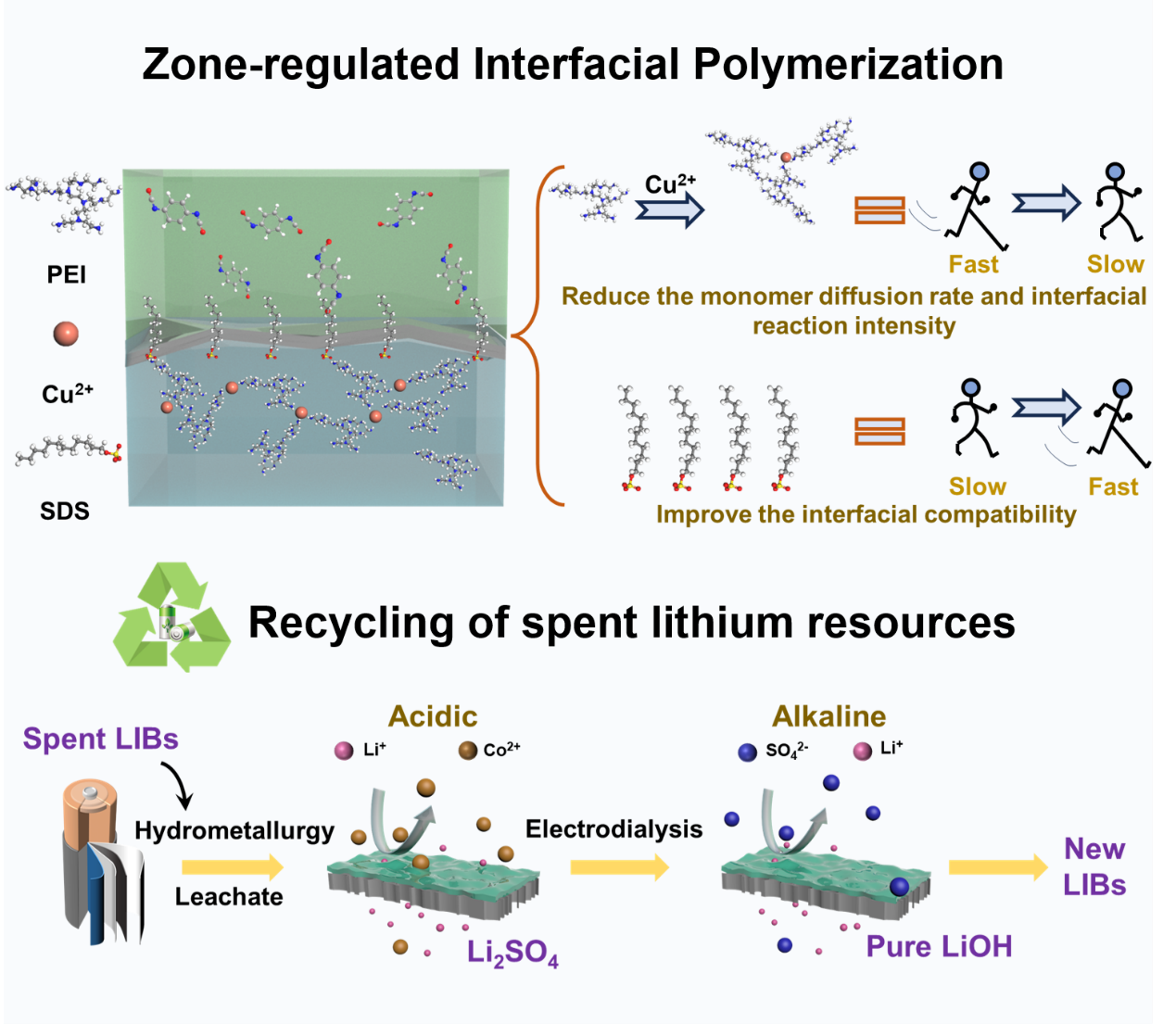In a study published in Journal of Membrane Science (DOI: 10.1016/j.memsci.2024.123405), a research group led by Prof. WAN Yinhua from the Institute of Process Engineering (IPE) of the Chinese Academy of Sciences has proposed a new zone-regulated interfacial polymerization strategy, aiming to fabricate acid- and alkali-resistant nanofiltration (NF) membranes with high separation selectivity for lithium recovery from waste lithium batteries.
The rapid expansion of the new energy industry has driven a surge in demand for lithium resources, highlighting the need for effective recycling of spent lithium batteries. Green and efficient nanofiltration (NF) technology is emerging as a key solution for sustainable lithium recovery. However, conventional polyamide NF membranes face challenges such as structural degradation under acidic and alkaline conditions, which compromises their separation performance.
A promising alternative lies in polyurea (PU) membranes, known for their chemical stability and use in specialty separation processes. However, the application of polyethyleneimine (PEI) as the aqueous phase monomer in PU fabrication introduces challenges. PEI’s numerous reactive sites result in highly intense interfacial polymerization, producing uneven membrane structures and poor reproducibility, issues that hinder its scalability for lithium recovery applications.

Polyurea Membranes for Waste Lithium Recovery Using Zone-regulated Interfacial Polymerization (Image by XIAO Shiyu)
The strategy proposed in this study involves regulating the diffusion behavior of monomers in the bulk solution and at the phase interface through the use of the reaction inhibitor Cu²⁺ and the surfactant sodium dodecyl sulfate (SDS), respectively.
“We use Cu²⁺ to regulate the diffusion and reactivity of PEI, while SDS ensures even distribution at the phase interface, improving membrane integrity. Together, Cu²⁺ and SDS enable the formation of a thinner, more uniform PU separation layer,” explained Prof. WAN.
This strategy precisely controls the diffusion and interaction of monomers both in bulk solution and at the interface, enhancing the uniformity of the polymerization process. It also mitigates the rapid reactivity of hyperbranched monomers, which improves batch-to-batch stability and membrane consistency.
PU membranes demonstrate exceptional chemical stability, maintaining separation selectivity even in the harsh acidic and alkaline conditions encountered with during lithium recovery from waste batteries. By balancing charge and size effects, these membranes provide reliable performance under extreme pH environments.
“Our zone-regulated interfacial polymerization strategy showcases the importance of controlling monomer diffusion behavior to improve membrane performance and manufacturing stability. This study expands the scope of PU membranes in the energy sector, offering a robust solution for sustainable lithium recovery,” said Prof. LUO Jianquan, corresponding author of the study.
In summary, this study marks a significant step forward in both recycling technology and membrane science, aligning with global efforts toward sustainable resource utilization in the rapidly growing new energy landscape.
Media Contact:
LI Xiangyu
Public Information Officer
Institute of Process Engineering, Chinese Academy of Sciences, Beijing 100190, P. R. China.
E-mail: xiangyuli@ipe.ac.cn Tel: 86-10-82544826
 Search
Search




 京公网安备110402500047号
京公网安备110402500047号